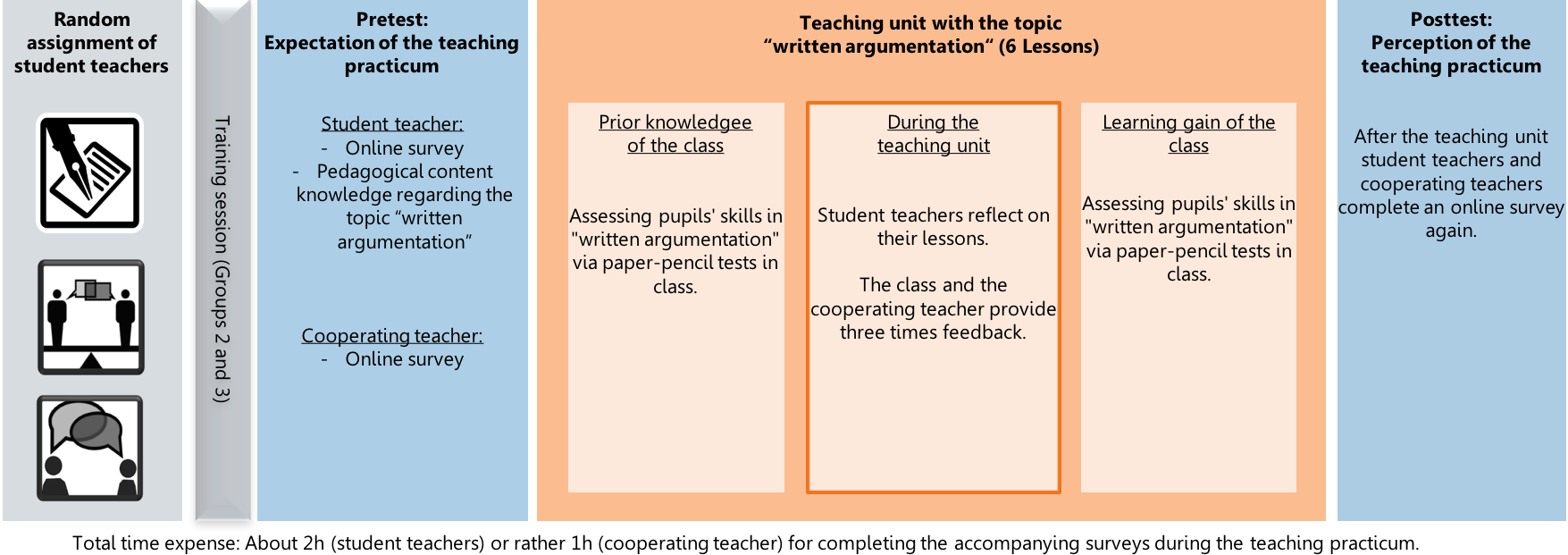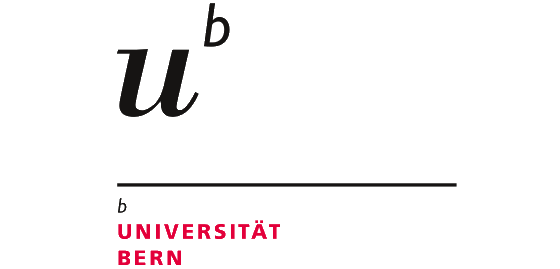COPRA - Coaching im Praktikum
SNF- & DFG-Projekt "COPRA - Coaching im Praktikum"
An Intervention Study on the Effectiveness of Different Support Programs for Teaching Practicums in Germany and Switzerland
Introduction
Teaching practicums are at the heart of teacher education as they provide student teachers with the opportunity to connect theoretical knowledge with experience-based learning in schools. Teaching practicums are also one of the most challenging aspects of teacher training. Little is known about the effects of specific ways of assisting and coaching student teachers during this time. Over the past years, interest in learning processes during the teaching practicum has increased considerably, yet the integration of results from various studies proves to be difficult as findings originate from very different practical contexts.
The aim of the bi-national research project COPRA (Coaching in the Practicum) is a) to examine the implementation and efficacy of various support programs during the teaching practicum at four different institutions of teacher education using a quasi-experimental design, and b) to reconstruct the characteristics of the different institutions using a qualitative research approach. The project is funded by the Swiss National Science Foundation (SNF) and the German Research Foundation (DFG).
The study was carried out between June 2016 and December 2019 with more than 200 student teachers. During their teaching practicum, student teachers received either regular support offered by their university of teacher education (baseline, control group) or they were randomly allocated to one of three different support conditions (intervention groups): (1) The student teachers received newly developed, subject-specific teaching materials, (2) the student teachers additionally received support by a cooperating teacher who participated in a training on content-focused coaching (see Staub, 2015) or (3) the student teachers themselves participate in a training in content-focused coaching and receive support by a peer coach during the teaching practicum.
The study aims to examine the effectiveness of those interventions in regard of the practicum itself (e.g., perceived self-efficacy during teaching), student reachers‘ learning outcomes (e.g. increase of competence in lesson planning) and learning outcomes of the pupils being taught by the student teachers (learning growth in the field of written argumentation).
The research project is of particular social, educational and political relevance, as knowledge about conducive and obstructive conditions for improving the teaching practicum is gained. Thereby, the project is breaking new ground as cultural and context-specific peculiarities are being considered for the implementation of the interventions and their effectiveness.
Description of Interventions
 |
Subject-specific teaching materials: Students teachers and cooperating teachers receive newly developed subject-specific teaching materials regarding German lessons with the topic “written argumentation”. They can use these materials for the teaching unit just like the other two groups. Apart from this, the cooperation with the cooperating teacher takes place «as usual». |
 |
Peer Coaching*: Student teachers attend a training course in Content-Focused Coaching with an e-learning specialization lasting 4 hours before they begin their teaching practicum. During the teaching unit with the topic “written argumentation”, one student teacher per dyad takes over the role of a coach. The cooperating teacher is only there to help with important questions. Student teachers organize the lesson conferences themselves. |
 |
Content-focused Coaching: Prior to the teaching practicum, the cooperating teacher attends a training course in Content-Focused Coaching with an e-learning specialization lasting 4 hours. The cooperating teacher tries to implement the Content-Focused Coaching approach during the teaching practicum. |
* Due to organizational reasons, the Peer-Coaching Intervention was only implemented at two teacher training institutions
Design and procedure of the study
Before and after the teaching unit, student teachers and cooperating teachers complete online surveys (pre- and post-test). In order to determine the learning gain of the class that was taught during the practicum, examination tasks are implemented before and after the teaching unit. During the teaching unit student teachers fill out short questionnaires, documenting each lesson taught and possible lesson conferences. In addition, the class and the cooperating teacher provide reports on student teachers‘ instructional quality three times via paper-pencil questionnaires during the teaching unit.

Data Assessment
The results from the intervention study will be interpreted in light of the qualitative analysis of the institutional and cultural framework of the four teacher training institutions. The following main research questions are addressed: What are the differences and/or similarities between the four institutions regarding teacher training? What are the characteristics of the institutions in terms of student teachers’ freedom and participation before and during the teaching practicum? To characterize and represent the different institutional profiles, document analysis and rating conferences (short questionnaires and subsequent group interviews) are used.
The study is carried out by the Universities of Zürich, Bern, Kassel and Bamberg. Project leaders are Fritz Staub (Zürich), Tina Hascher (Bern), Alois Niggli (formerly Fribourg), Dorit Bosse (Kassel) und Sibylle Rahm (formerly Bamberg).
Literature recommendations
Kreis, A. & Staub, F. C. (2013). Kollegiales Unterrichtscoaching. In A. Bartz, M. Dammann, S. G. Huber, T. Klieme, C. Kloft & M. Schreiner (Hrsg.), PraxisWissen SchulLeitung (Vol. 33. Aktualisierungslieferung. Teil 3, 30.32, S. 1-13). Köln: Wolters Kluwer.
Staub, F. C. (2015). Fachspezifisches Unterrichtscoaching. In H.-G. Rolff (Hrsg.), Handbuch Unterrichtsentwicklung (S. 476–489). Weinheim: Beltz.





